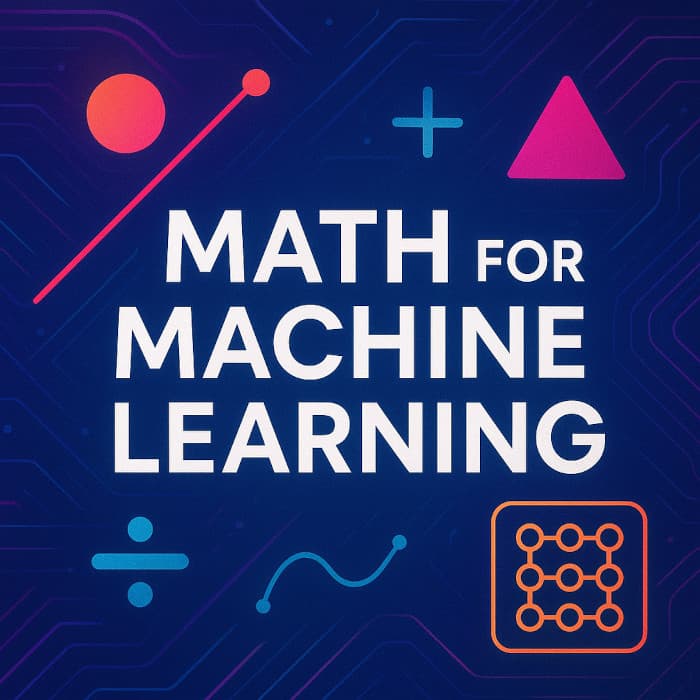
Math for Machine Learning - Chapter 12: Eigen decomposition and Diagonalization
Created by Shiju P John · 11/4/2025
📚 Subject
Math for Machine Learning
🎓 Exam
Any
🗣 Language
English
🎯 Mode
Practice
🚀 Taken
0 times
No. of Questions
1
Availability
Free
📄 Description
This quiz rigorously tests your advanced understanding of Eigendecomposition and Diagonalization, crucial concepts in linear algebra for machine learning. The questions cover theoretical foundations, computational aspects, and practical implications, designed to challenge even expert learners.
Key formulas and concepts:
-
Eigenvalue Equation: For a square matrix , a non-zero vector is an eigenvector if , where is the corresponding eigenvalue.
-
Characteristic Equation: Eigenvalues are found by solving , where is the identity matrix.
-
Diagonalization: A matrix is diagonalizable if there exists an invertible matrix and a diagonal matrix such that . The columns of are the linearly independent eigenvectors of , and the diagonal entries of are the corresponding eigenvalues.
-
Conditions for Diagonalization: is diagonalizable if and only if for every eigenvalue , its algebraic multiplicity equals its geometric multiplicity. A sufficient condition is that has distinct eigenvalues. Real symmetric matrices are always orthogonally diagonalizable ().
-
Properties of Eigenvalues:
-
Trace:
-
Determinant:
-
Eigenvalues of are .
-
Eigenvalues of are (if is invertible).
-
-
Matrix Functions: For an analytic function , if , then .
-
Geometric Interpretation: Eigendecomposition reveals the invariant directions (eigenvectors) along which a linear transformation acts merely as a scaling (eigenvalues).
-
Applications: Fundamental to PCA (Principal Component Analysis) for dimensionality reduction, spectral clustering, solving systems of linear ODEs and recurrence relations, and understanding the stability of dynamical systems.
This quiz demands a deep understanding of these principles and their interconnections. Good luck!